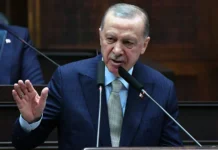raeli public debate is focused these days on a seemingly simple incident: In Hebron, two Palestinian terrorists attacked a team of Israel Defense Forces soldiers, managing to stab one of them before they themselves were shot. One terrorist was killed and the other injured. The latter was lying on the road when a soldier arrived, observed the scene and, without being commanded to do so, shot the terrorist once in the head. An autopsy, performed by Israeli forensic doctors in the presence of a Palestinian forensic doctor, revealed that that last shot was what killed the terrorist.
For more than 20 years now, I have been active in studying the military ethics of the IDF and in writing related documents such as the 1994 IDF Code of Ethics. I would like to make a few observations about the incident from that perspective.
At the core of military ethics in a democracy — whether it’s the United States, United Kingdom, Canada or Israel — you find two principles manifest in all doctrines, procedures, ROEs and commands. First, the right and duty of self-defense. A person and a state have the right to defend themselves when they are in jeopardy caused by unlawful activities of criminals or enemies. Plus, a democratic state has a duty to effectively defend its citizens when they are in such jeopardy. Second, every act of the state, including acts taken on its behalf by police or military, ought to show respect for human dignity. This means that compelling justification is needed for any significant interference in a person’s situation.
Killing a person is a last resort in self-defense and it ought to be confined to circumstances of necessity. It is ethically, morally and legally wrong to kill a person if it is not a necessary step of self-defense.
The military investigation found that before the soldier shot the terrorist, he said that the terrorist had injured an IDF comrade and therefore ought to be killed. Such reasoning is utterly wrong, whether it is meant to justify retaliation, punishment, deterrence or what have you.
The circumstances of the Hebron incident have often been misunderstood. Yes, the terrorist was an enemy, but soldiers are required to treat a terrorist wielding a knife as a criminal, not as an enemy in a battlefield. The terrorist’s attempt to kill or injure ought to be foiled, but killing him is sanctioned only if there is no effective alternative — only if it’s a last resort.


























